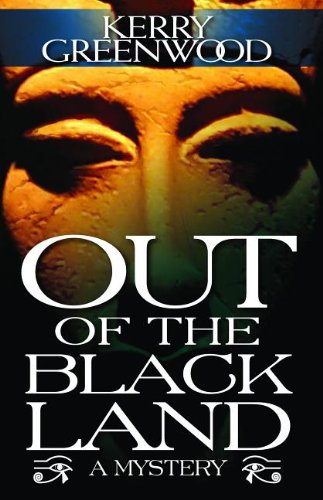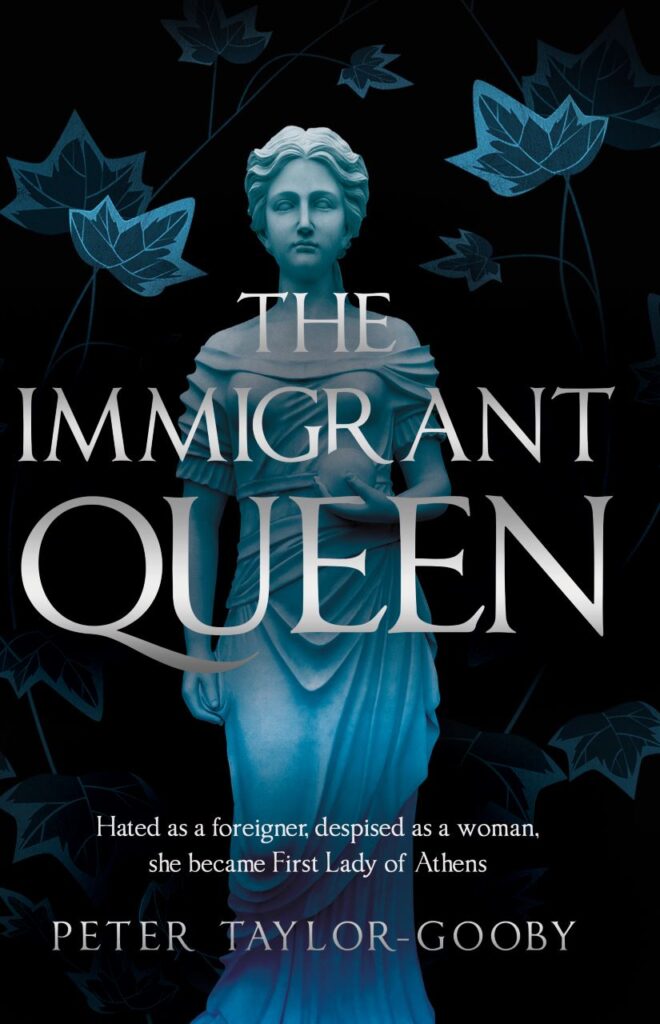Out of the Black Land
Kerry Greenwood is known for Jazz Age mysteries, but Out of the Black Land is a different animal. Eighteenth dynasty Egypt is portrayed through the narratives of Nefertiti’s sister, Mutnodjme, and Ptah-hotep, a scribe. Many writers using this setting cover comparable material (e.g. Mika Waltari, Allen Drury, Michelle Moran, et al.), rendering the story familiar: Amenhotep III’s Egypt is powerful, peaceful, and secure… until his unstable son, Akhnaten, takes the throne, moves the capital, and overthrows the gods in favor of his monotheistic Aten.
The book is subtitled “a mystery,” a complete misnomer, and calling it a thriller, as some reviews have, is equally inaccurate. There’s intrigue, but it defies suspense, and is subordinated to a great deal (too much, in this reviewer’s opinion) of long passages from ancient Egyptian mythologies, songs, and texts — and sex. Lots of sex. Heterosexual, homosexual, and (to complete the soft porn trinity) ménage à trois. These scenes and the prose in general are well written, but plotting is sketchy, the deus (or, in this case, dea) ex machina makes an appearance, and when Mutnodjme delved into the minutia of nominative and dative for cuneiform, I found myself wondering what the heck this book thought itself to be. It’s always interesting to see how each new author characterizes the royal family and its circle, and Greenwood has chosen monomaniacal for Akhnaten, stupid for Nefertiti, and world-saving for Queen Tiye, Mutnodjme, Horemheb, and Ptah-hotep. Greenwood competently portrays the social strata of Egypt’s permissive civilization, but some of her depictions (e.g. describing Nubians more than once as having “melon” grins) struck this reviewer as unfortunate. Since so much space is wasted, the conclusion of the novel is car-crash condensed but much less climactic.










